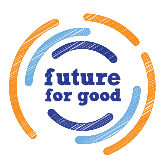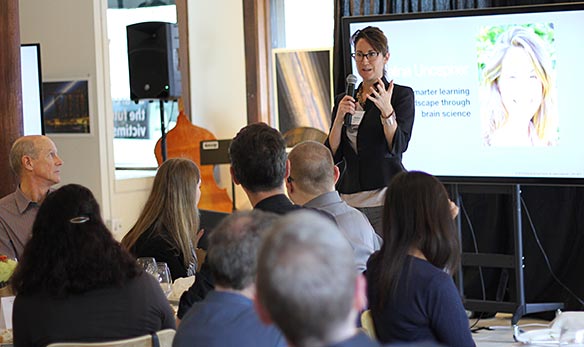Future Now
The IFTF Blog
2016 Future for Good Fellows take on the future of social invention
Social invention is the process of inventing new social forms and practices to create a better future for everyone. It is itself social—that is, it’s a collaborative, collective undertaking that engages networks or communities of people to reinvent themselves.  This vision of social invention is the driving force behind IFTF’s Future for Good initiative.
This vision of social invention is the driving force behind IFTF’s Future for Good initiative.
Each year, IFTF invites six social inventors who are experimenting with innovations, from food hackathons to new approaches for ending human rights violations, to be Future for Good Fellows. The fellowship is designed to help them “futurize” their work—building their futures thinking skills and engaging with the global foresight community. Through these fellowships, IFTF seeks to systematically amplify the fellows’ experiments and, at the same time, peer into the future of social invention.
On March 22, IFTF celebrated the successes of the 2015 Future for Good Fellows and announced six new fellows for 2016. At a luncheon attended by more than 80 friends of the Institute, the outgoing fellows described all the ways the fellowship has validated, inspired, and amplified their work, which ranged from neuroscience-informed education to portable benefits for a new era of labor. IFTF offers best wishes for continued success to Ashara Ekundayo, Natalie Foster, Pia Mancini, Colin Mutchler, Melina Uncapher, and Tim West.
|
|
The 2015 Future for Good Fellows say farewell.

Neuroscientist Melina Uncapher announces White House invitation to convene session on evidence-based education.
2016 Future for Good Fellows
At the same time, IFTF welcomed a new class of Future for Good Fellows for 2016. Like previous classes, this year’s fellows represent an inspiring diversity of backgrounds and zones of innovation. They are:
|
|
| |
|
|
|
Over the coming months, these six fellows will work with IFTF staff to integrate a futures perspective into their hands-on work in the present, perhaps reinventing the future of music, poverty, farming, labor, learning, and civic engagement with the arts. Perhaps they will also reinvent themselves for the future.
More Information
For more information about the Future for Good initiative, contact:









